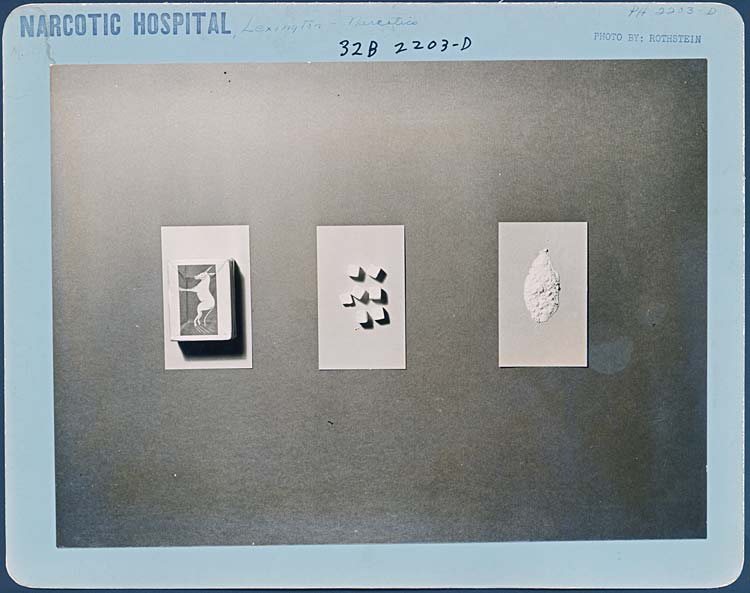The legislature approved "an act relating to barbiturates" on March 25, 1950. The act made it unlawful for any person "to possess, manufacture, sell, dispense, prescribe, or administer any barbiturate" except pharmacists and practitioners (persons licensed to prescribe medicines). All distribution of barbiturates was to occur only with clear labeling and proper documentation. Wholesalers and manufacturers may distribute barbiturates only to pharmacists, practitioners, researchers, hospitals, federal, state, and local governments, or other manufacturers and wholesalers. All documentation related to the distribution of barbiturates was to be preserved for at least two years. The act was to be jointly administered by the State Board of Health and the State Board of Pharmacy. Violations of the act were to be punished by a fine of up to five hundred dollars or imprisonment for up to one year, or both.

This photograph, narcotics concealed in a pack of cards, is from the Lexington Narcotic Farm Collection taken during the late 1930s. Patients entering the Lexington Narcotic Farm sometimes attempted to sneak narcotics inside ordinary objects like books, cards, or change purses. The Lexington Narcotics Farm was a combination of hospital and prison where violators of legislation such as the Barbiturates act and other state and federal acts were sent to be rehabilitated. Kentucky Historical Society Collections.
